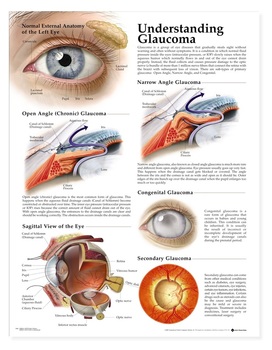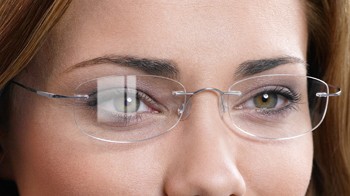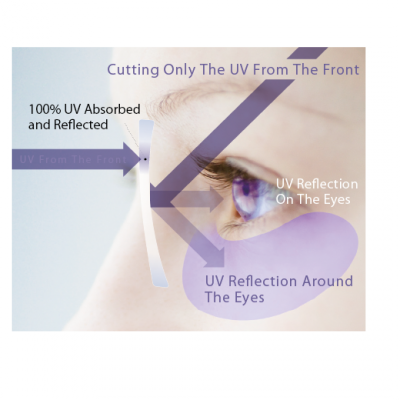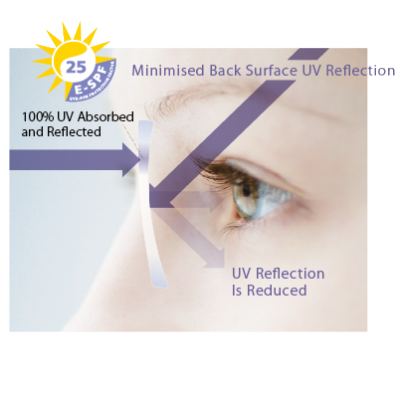 Glaucoma is a term given to a group of conditions in which the optic nerve suffers a characteristic form of damage. The optic nerve damage causes a reduced level of vision in specific sectors of the visual field which can vary in severity from patient to patient.  The right lens shows an uncoated lens while the left lens shows an AR coated lens The right lens shows an uncoated lens while the left lens shows an AR coated lens We know that lenses help you achieve exceptionally sharp vision. But annoying reflections from the surface of your lenses can reduce the quality of your vision while also making your lenses appear more conspicuous to others. Distracting surface reflections interfere with vision and serve as “visual noise” that degrades visual clarity, particularly in low-light conditions such as night driving. Uncoated eyeglass lenses are also susceptible to scratching from cleaning or normal wear and tear, which can compromise your vision quality. In fact approximately 8% of light is reflected from the surface, which means 92% of the light is used for critical vision. Anti-reflective coating technology was developed to address these issues, and it continues to develop to provide clearer, more durable lens coatings. However there are many additional layers to an anti-reflective coating which helps it's performance, and it is these invisible layers which make anti-reflection coatings either a nightmare or a dream. I have separated the layers below to allow you to appreciate what is involved in the best anti-reflection coatings, such as Essilor Crizal UV Forte or the Zeiss Purecoat Plus. Cheaper lenses will obviously omit certain layers and it is up to individual lens manufacturer to decide what to compromise on to keep the cost low for the consumer. Anti-reflective Technology Lenses without anti-reflective technology reflect a significant amount of light. Surface reflections from lenses can distract the wearer and even interfere with vision, particularly in low-light conditions like night driving or when performing intensive visual tasks like computer use. The anti-reflective technology helps reduce reflections to less than 1% of the incident light — compared with 7% to 13% for uncoated lenses. Scratch-resistant Technology Plastic lenses help make glasses lighter and more comfortable, but they’re much more prone to scratches than glass lenses. The scratch resistant technology varies depending on the lens manufacturer with some lenses easier to scratch than others. This technology helps keep lenses from developing scratches from cleaning and normal wear and tear. Certain coatings ,such as the Crizal UV Forte, now come with a 2 year anti-scratch guarantee. Anti-static Technology Dirt and dust can cling to traditional untreated lenses, reducing vision quality and leading to scratches when cleaning. The anti-static element in premium coatings helps repel contaminants like dust and debris. Hydrophobic and Oleophobic Technology Grease, water, and oil will more readily slide off the surface of lenses treated with this super-slick coating, so the lenses are easier to clean and stay clean longer. UV Blocking Technology We all know UV can damage our skin. But what about our eyes? UV can seriously damage your vision. Normal UV protection helps shield your eyes from rays that pass through the front of your glasses. Essilor's Crizal UV Forte goes further, protecting your eyes from UV light reflected off the back surface of your lenses too. |
AuthorJay Patel is an optometrist at Martin Reynolds Opticians Archives
March 2023
Categories |
|
24 North Street, Bishops Stortford, Hertfordshire, CM23 2LW
01279 757767 ©Copyright Martin Reynolds Opticians 2023 Terms and Conditions Privacy Policy Optiplan Terms and Conditions |



 RSS Feed
RSS Feed



